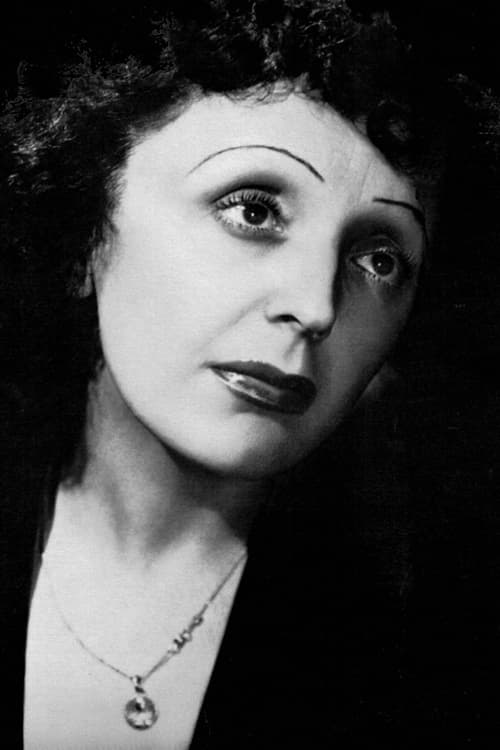Édith Piaf (born Édith Giovanna Gassion, 19 December 1915 – 10 October 1963) was a French singer, lyricist and actress. Noted as France's national chanteuse, she was one of the country's most widely known international stars.
Piaf's music was often autobiographical, and she specialized in chanson réaliste and torch ballads about love, loss and sorrow. Her most widely known songs include "La Vie en rose" (1946), "Non, je ne regrette rien" (1960), "Hymne à l'amour" (1949), "Milord" (1959), "La Foule" (1957), "L'Accordéoniste" (1940), and "Padam, padam..." (1951).
Since her death in 1963, several biographies and films have studied her life, including 2007's La Vie en rose. Piaf has become one of the most celebrated performers of the 20th century.
Despite numerous biographies, much of Piaf's life is unknown. She was born Édith Giovanna Gassion in Belleville, Paris. Legend has it that she was born on the pavement of Rue de Belleville 72, but her birth certificate says that she was born on 19 December 1915 at the Hôpital Tenon, a hospital located in the 20th arrondissement.
She was named Édith after the World War I British nurse Edith Cavell, who was executed 2 months before Édith's birth for helping French soldiers escape from German captivity. Piaf – slang for "sparrow" – was a nickname she received 20 years later.
Louis Alphonse Gassion (1881–1944), Édith's father, was a street performer of acrobatics from Normandy with a past in the theatre. He was the son of Victor Alphonse Gassion (1850–1928) and Léontine Louise Descamps (1860–1937), known as Maman Tine, a "madam" who ran a brothel in Bernay in Normandy.
Her mother, Annetta Giovanna Maillard, better known professionally as Line Marsa (1895–1945), was a singer and circus performer born in Italy of French descent on her father's side and of Italian and Kabyle on her mother's. Her parents were Auguste Eugène Maillard (1866–1912) and Emma (Aïcha) Saïd Ben Mohammed (1876–1930), daughter of Said ben Mohammed (1827–1890), an acrobat born in Mogador and Marguerite Bracco (1830–1898), born in Murazzano in Italy.
Annetta and Louis-Alphonse divorced on 4 June 1929.
Piaf's mother abandoned her at birth, and she lived for a short time with her maternal grandmother, Emma (Aïcha). When her father enlisted with the French Army in 1916 to fight in World War I, he took her to his mother, who ran a brothel in Bernay, Normandy. There, prostitutes helped look after Piaf. The bordello had two floors and seven rooms, and the prostitutes were not very numerous – "about ten poor girls", as she later described. In fact, five or six were permanent while a dozen others would join the brothel during market days and other busy days. The sub-mistress of the brothel was called "Madam Gaby" and Piaf considered her almost like family, since she became godmother of Denise Gassion, Piaf's half-sister born in 1931. Edith believed her weakness for men came from mixing with prostitutes in her grandmother's brothel. ...
Source: Article "Édith Piaf" from Wikipedia in English, licensed under CC-BY-SA 3.0.
More »
